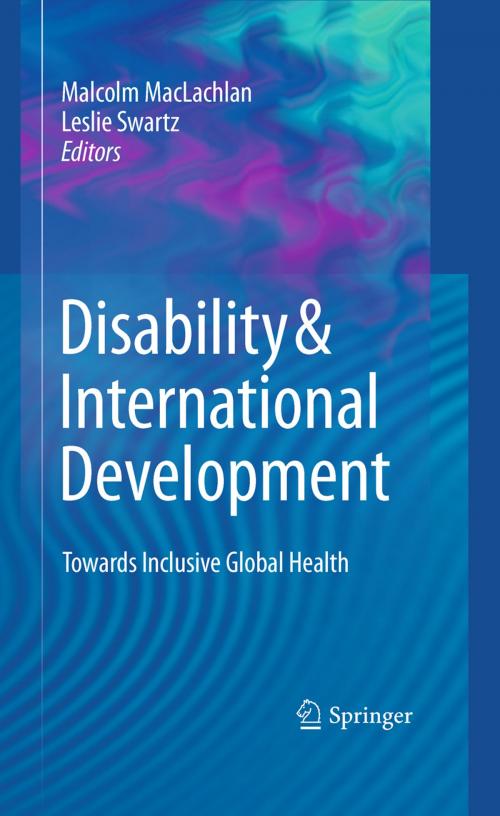Disability & International Development
Towards Inclusive Global Health
Nonfiction, Health & Well Being, Medical, Reference, Administration, Public Health| Author: | ISBN: | 9780387938400 | |
| Publisher: | Springer New York | Publication: | July 21, 2009 |
| Imprint: | Springer | Language: | English |
| Author: | |
| ISBN: | 9780387938400 |
| Publisher: | Springer New York |
| Publication: | July 21, 2009 |
| Imprint: | Springer |
| Language: | English |
One of the greatest challenges facing modern global health is how to include the most marginalized and impoverished people in international efforts to promote social and economic development. In Disability and International Development disability rights are situated within the broader context of global health and the need for much greater inter-sector collaboration. Reports from a broad cross-section of low- and middle-income countries—locales as diverse as Zimbabwe, Bolivia, Kyrgyzstan, and Papua New Guinea—move beyond surface discussions of "what is working" and "what shows promise" to discuss political and governance contexts, the roles of disabled persons in research by outsiders, concurrent struggles (e.g., women’s or children’s rights), and instructive inroads made by community activists and national Disabled People’s Organizations. The results are provocative, and offer new lenses for viewing both the issues and the populations they affect.
Each of the book’s chapters spotlights a topic as representative of the enormity and immediacy of challenges to inclusive global health, including:
- The impact of international human rights law on domestic law and local traditions.
- The effect of failed states on the lives of people with disabilities.
- Empowerment and advocacy: disability organizations and movements.
- HIV/AIDS interventions with disabled persons.
- Assistive technologies in low-income countries.
- Strategies for improving the lives of children with disabilities.
Cross-disciplinary as well as cross-cultural, Disability and International Development will attract a wide audience of professionals in rehabilitation, social welfare and human rights; governmental and non-governmental organizations and disabled people’s organizations; researchers and practitioners. It will also be relevant to those working in health and welfare administration, health policy, international aid and development, and human rights. In addition, graduate students in disability studies, public and global health and international development should find this an important guide to the future of these fields.
One of the greatest challenges facing modern global health is how to include the most marginalized and impoverished people in international efforts to promote social and economic development. In Disability and International Development disability rights are situated within the broader context of global health and the need for much greater inter-sector collaboration. Reports from a broad cross-section of low- and middle-income countries—locales as diverse as Zimbabwe, Bolivia, Kyrgyzstan, and Papua New Guinea—move beyond surface discussions of "what is working" and "what shows promise" to discuss political and governance contexts, the roles of disabled persons in research by outsiders, concurrent struggles (e.g., women’s or children’s rights), and instructive inroads made by community activists and national Disabled People’s Organizations. The results are provocative, and offer new lenses for viewing both the issues and the populations they affect.
Each of the book’s chapters spotlights a topic as representative of the enormity and immediacy of challenges to inclusive global health, including:
- The impact of international human rights law on domestic law and local traditions.
- The effect of failed states on the lives of people with disabilities.
- Empowerment and advocacy: disability organizations and movements.
- HIV/AIDS interventions with disabled persons.
- Assistive technologies in low-income countries.
- Strategies for improving the lives of children with disabilities.
Cross-disciplinary as well as cross-cultural, Disability and International Development will attract a wide audience of professionals in rehabilitation, social welfare and human rights; governmental and non-governmental organizations and disabled people’s organizations; researchers and practitioners. It will also be relevant to those working in health and welfare administration, health policy, international aid and development, and human rights. In addition, graduate students in disability studies, public and global health and international development should find this an important guide to the future of these fields.















